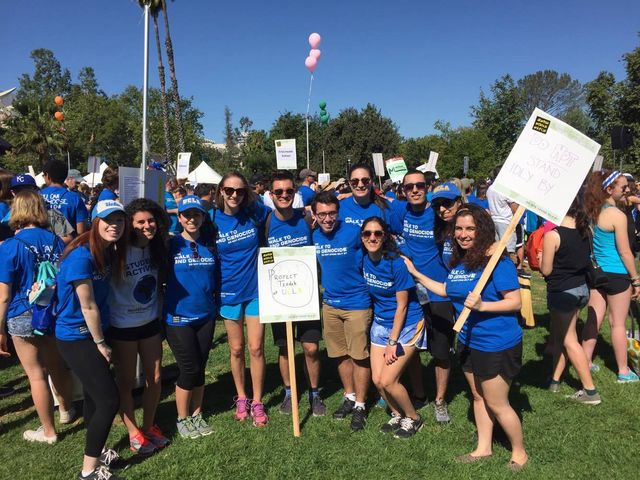“Genocide” is a term that the Jewish community does not take lightly. By definition, genocide is the systematic elimination of a group due to their particular culture, ethnicity, religion, race, or nationality. If a person were to delve into a book of Jewish history, he would find reoccurring attempts at genocide of the Jewish people. After the biblical figure and vizier of Egypt, Joseph, passed away, the newly presiding pharaoh ordered that all male Jewish newborns be killed, fearing that these children would one day rise up against the Egyptian empire. In Persia, King Ahasuerus’ corrupt vizier, Haman, formalized a legislation calling for the annihilation of Jews across the empire. Luckily, in both occasions, a leader courageously rose and led the Jewish people to safety. In the case of Egypt, it was Moses, who, by divine intervention, released enslaved Jews from bondage and took them out of Egypt. In Persia, Queen Esther used her wit to convince King Ahasuerus to approve counter legislation that would grant the Jews of the Persian Empire the right to self-defense.
More recently, a German chancellor sought to wipe out those whom he considered racially inferior to his Aryan nation; that man’s name was Adolf Hitler. Unfortunately, Hitler’s victims — Jews, gypsies, Slavs, disabled civilians, Jehovah’s Witnesses, Socialists, Communists and homosexuals — lacked the leader necessary to save them, and 11 million lives were lost in mass shootings, in gas chambers and in death marches. Today, Jewish communities and organizations nationwide dedicate their time to staying updated on global affairs in an effort to preempt genocidal sentiments before they can be acted upon. One organization with such a mission is Jewish World Watch (JWW). Founded in 2004 by the late Rabbi Harold M. Schulweis, JWW was created in response to the genocide in Darfur. Since then, JWW has expanded from meeting in a few synagogues in Southern California to assembling in churches, schools and communities across America. Moreover, JWW supporters have branched out to acknowledge and combat other genocides such as those inflicted upon the Armenians in Turkey and the Rwandans of Africa. Among their most popular events for spreading awareness and garnering community support is the Walk to End Genocide.
On Sunday, April 17, JWW of Los Angeles held its tenth annual walk at the La Brea Tar Pits Park. The event boasted approximately 2,500 participants. This year’s special guest was Los Angeles’ Mayor, Eric Garcetti, who expressed his utmost support for the mission of JWW while speaking before the attendees. Other notable guests included Zev Yaroslavsky, one of the initial founders of Ha’Am, and Stuart Gabriel, JWW board member and Director of the Ziman Center for Real Estate at UCLA. “We all have to rise up when we see instances of genocide in our world,” Gabriel said as the event kicked off.
In addition to the numerous temple and high school teams present, Jewish Bruins were also in attendance. 11 students from UCLA’s Project Tzedek team — myself included — collaborated with JWW, a group that students believe embodies the very ideals Hillel emphasizes on a daily basis: teamwork, leadership and repairing the world. Team captain Danna Creager and Project Tzedek leaders Brian Hertz and Yvonne Winer led Bruins as they marched with signs reading “Do Not Stand Idly By” and “Project Tzedek at UCLA.”
After learning that Hillel had not led a team for the past few years, I wondered what had inspired these leaders to establish a group at this time. “We thought it would be a great opportunity for us to participate in a social justice movement that has been taken on by a large Jewish organization and would give all of us the opportunity to feel like we were, literally, taking steps to make a difference in the world,” Hertz explained. In drawing the connection between participation in the walk and Judaism, Hertz stated that our participation is “a manifestation of our Jewish values… we, as Jews, know what it means to be victims of genocide, and it is thus important that we work to end these atrocities around the world.”
So far, Project Tzedek at UCLA has already raised over $400 in donations. Hillel at UCLA has agreed to match every dollar raised by students. It is the hope of the general community that Project Tzedek remains strong and continues to encourage students to bring social justice to communities both local and abroad.

